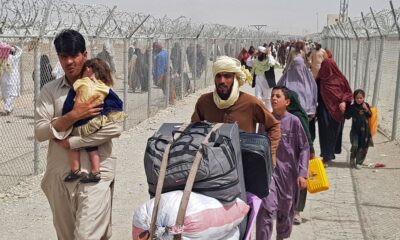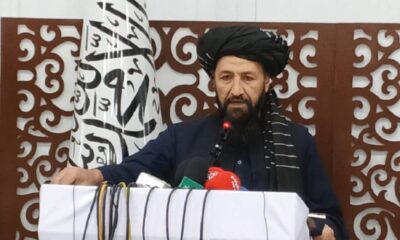Latest News
Afghanistan’s opium cultivation drops by 95% this year: UNODC
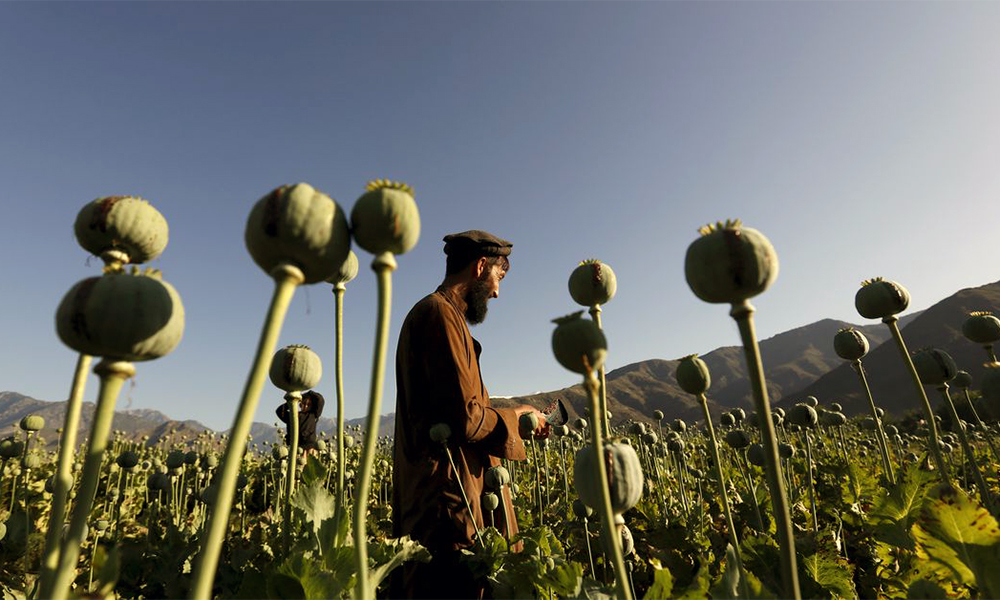
The United Nations Office on Drugs and Crime (UNODC) said Sunday that opium poppy cultivation in Afghanistan has plunged by an estimated 95 percent following a drug ban imposed by the Islamic Emirate of Afghanistan in April last year.
According to a statement issued by UNODC, this sharp decline in the opiate economy in Afghanistan is expected to have “far-reaching consequences”. The agency highlighted the urgent need for enhanced assistance for rural communities, accompanied by alternative development support to build an opium free future for the people.
UNODC said opium cultivation fell across all parts of the country, from 233,000 hectares to just 10,800 hectares in 2023.
The decrease has led to a corresponding 95 percent drop in the supply of opium, from 6,200 tons in 2022 to just 333 tons in 2023.
The sharp reduction has had immediate humanitarian consequences for many vulnerable rural communities who relied on income from cultivating opium.
Farmers’ income from selling the 2023 opium harvest to traders fell by more than 92 percent from an estimated
$1,360 million for the 2022 harvest to $110 million in 2023.
“This presents a real opportunity to build towards long-term results against the illicit opium market and the damage it causes both locally and globally,” said Ghada Waly, Executive
Director of UNODC.
“At the same time, there are important consequences and risks that need to be addressed for an outcome that is ultimately positive and sustainable, especially for the people of Afghanistan.
“Today, Afghanistan’s people need urgent humanitarian assistance to meet their most immediate needs, to absorb the shock of lost income and to save lives,” Waly added.
“And over the coming months, Afghanistan is in dire need of strong investment in sustainable livelihoods, to provide Afghan farmers with opportunities away from opium,” she said.
The strong contraction of the opium economy in 2023, is expected to affect Afghanistan’s economy on a larger scale.
Many farmers turned to cultivating wheat instead, with an overall increase of 160,000 hectares in cereal across a number of provinces.
While wheat cultivation may alleviate food insecurity to some extent, the crop generates much less income than opium, and farmers across four provinces, Farah, Kandahar, Nangarhar and Helmand, lost around $1 billion in potential income in 2023 by switching to wheat, UNODC said.
The agency stated that beyond Afghanistan, less heroin may lead to reduced trafficking and use – or it could spur the emergence of harmful alternatives, such as fentanyl and other synthetic opioids.
Trafficking in other drugs, namely methamphetamine, has surged in the region, UNODC stated.
Latest News
Russia’s Supreme Court suspends ban on Islamic Emirate

Russia’s Supreme Court on Thursday agreed to suspend the Islamic Emirate’s designation as a banned organization in Russia, following a formal request from the Prosecutor General’s Office.
Although the IEA remains officially designated as a terrorist organization in Russia, the court’s ruling effectively freezes that classification, opening the door to broader political engagement.
The IEA, however, continues to be subject to United Nations sanctions.
According to Russian media reports, a representative of the IEA attended the closed-door court session, during which the court reviewed the prosecutor’s petition seeking to suspend the ban.
“The suspension follows an administrative lawsuit filed by the Prosecutor General’s Office of the Russian Federation,” Supreme Court Judge Oleg Nefyodov said while reading the ruling, according to local media.
The session was held behind closed doors, and Russian authorities have not yet publicly commented on the potential political implications of the move.
Latest News
WATCH: Authorities scramble to accommodate refugee influx at Afghanistan border
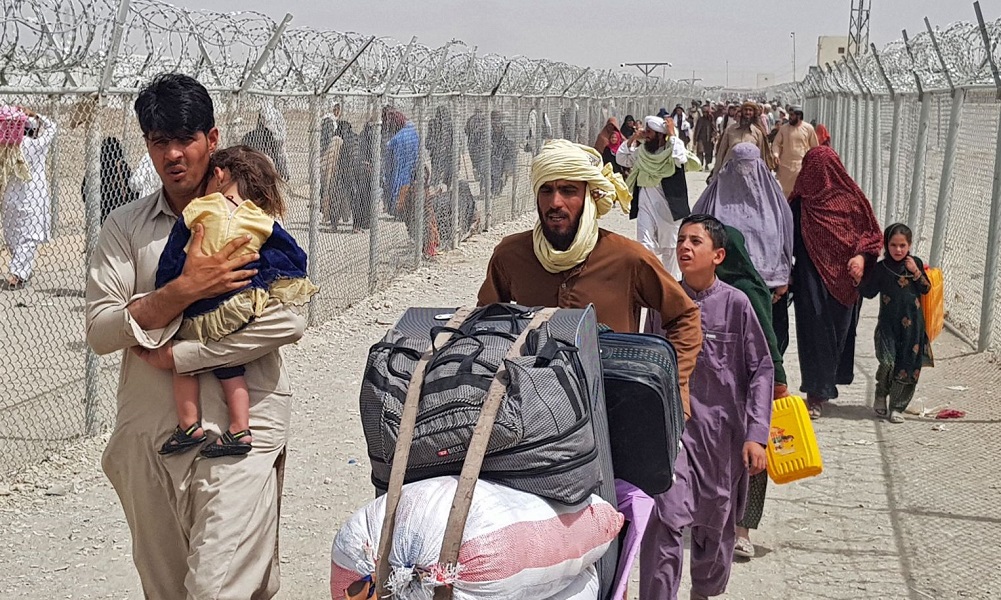
As thousands of refugees cross back into Afghanistan amid Pakistan’s campaign to forcibly expel over 1 million Afghans, local officials scramble to accommodate the influx which also means areas of landmines need to be cleared around the Torkham border area in order to establish more tented camps.
The mines and other unexploded ordnance are remnants of Afghanistan’s 20 year war that ended with the collapse of the former US-backed government in August 2021.
Government officials who visited Torkham this week say they are ready to cooperate with returning refugees.
Nooruddin Torabi, the head of the National Disaster Preparedness Agency, visited Torkham on Tuesday. He stressed the need to clear the area of mines and unexploded ordnance.
Torabi also said that another transit camp would be established to temporarily accommodate the returnees.
Refugees however have slammed the Pakistan government for the way they have handled this. Many say they are now homeless after having left everything behind, including houses, businesses and possessions. In addition to this, a large percentage of them have nowhere to go after having lived in Pakistan for decades.
Afghans have been fleeing to Pakistan for over 40 years – since the invasion of the old Soviet Union in December 1978.
Islamic Relief reported this week that tens of thousands of Afghans are facing dire conditions in makeshift camps after crossing the border from Pakistan.
According to the organization, an assessment team that visited Torkham found that many refugees are arriving in Afghanistan without any shelter, food, cash or water. These families were forced to leave possessions – including animals and household items.
People arrive in droves, covered in dust, crammed onto trucks, and face a barren border with no basic services in sight. The first thing that greets them is a harsh, wind storm swirling with dust.
This influx comes amid an economic crisis in the country and as global cuts to humanitarian funding have forced many essential services in Afghanistan to close, including health facilities and food distributions.
Many of the new arrivals have lived in Pakistan for decades after seeking refuge there, fleeing conflicts and instability in their homeland. They include children who were born in Pakistan and have never been to Afghanistan. Many others no longer have close family members in
Afghanistan or have not visited for many years. They are not truly ‘returning home’ as they hardly know Afghanistan and have no homes or livelihoods to kickstart their lives here.
Some of the arrivals do not even speak an Afghan language and many returnees lack proper identification documents.
The interim Afghan government has pledged to take care of refugees returning to Afghanistan and humanitarian organizations are ramping up efforts to help these refugees.
Pakistan last month set an early April deadline for some 800,000 Afghans carrying Afghan Citizen Cards (ACC) issued by the Pakistani authorities to leave the country, in the second phase of efforts to remove Afghans. More than 1.3 million Afghans who hold Proof of Registration cards from the UN refugee agency, UNHCR, have also been told to move outside the capital Islamabad and the neighbouring city of Rawalpindi
Latest News
Afghan, Pakistani commerce minister meet in Islamabad to discuss trade
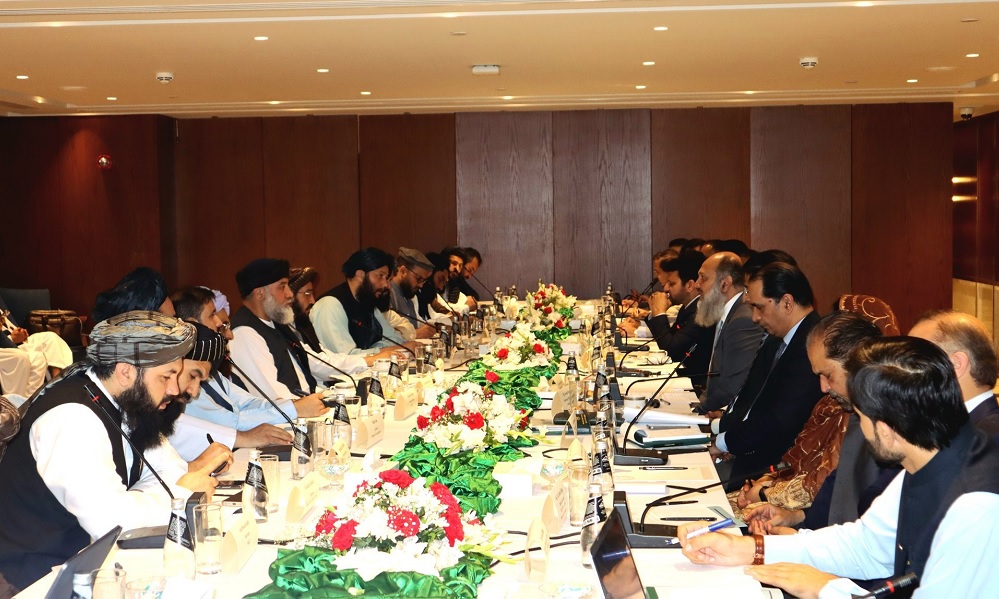
Afghanistan’s Acting Minister of Industry and Commerce Nooruddin Azizi met with his Pakistani counterpart Jam Kamal Khan, discussing bilateral trade, transit and other issues of mutual interest, it was announced on Thursday.
Separate meetings between the technical teams of both sides are also expected to be held for further discussions to find proper solutions for existing challenges and boost the bilateral trade, Afghanistan’s embassy in Islamabad said in a statement.
In a separate statement, Afghanistan’s Ministry of Industry and Commerce said that the meeting discussed extension of APTA trade agreement, transit facilities, prevention of smuggling of goods, coal exports, round-the-clock operations at Torkham crossing, possibility of bilateral trade through Ghulam Khan port, movement of trucks between the two countries, bank guarantee and creating a comprehensive mechanism for the management of ports.
-

 Regional5 days ago
Regional5 days agoIran, US hold ‘positive’ talks in Oman, agree to resume next week
-

 World4 days ago
World4 days agoTrump says Ukraine talks may be going OK, but there is a time ‘to put up or shut up’
-

 Latest News4 days ago
Latest News4 days agoPakistan’s Punjab CM calls for ‘human response’ to Afghan girls’ education ban
-

 Regional3 days ago
Regional3 days agoSaudi Arabia plans to pay off Syria’s World Bank debts – Reuters
-

 Latest News4 days ago
Latest News4 days ago6.1-magnitude earthquake shakes northern Afghanistan
-

 Latest News3 days ago
Latest News3 days agoAfghanistan and Uzbekistan to expand cooperation in agriculture sector
-

 Latest News2 days ago
Latest News2 days ago17 babies born at Torkham refugee centers in past two weeks
-

 World3 days ago
World3 days agoTrump says Iran must give up dream of nuclear weapon or face harsh response




